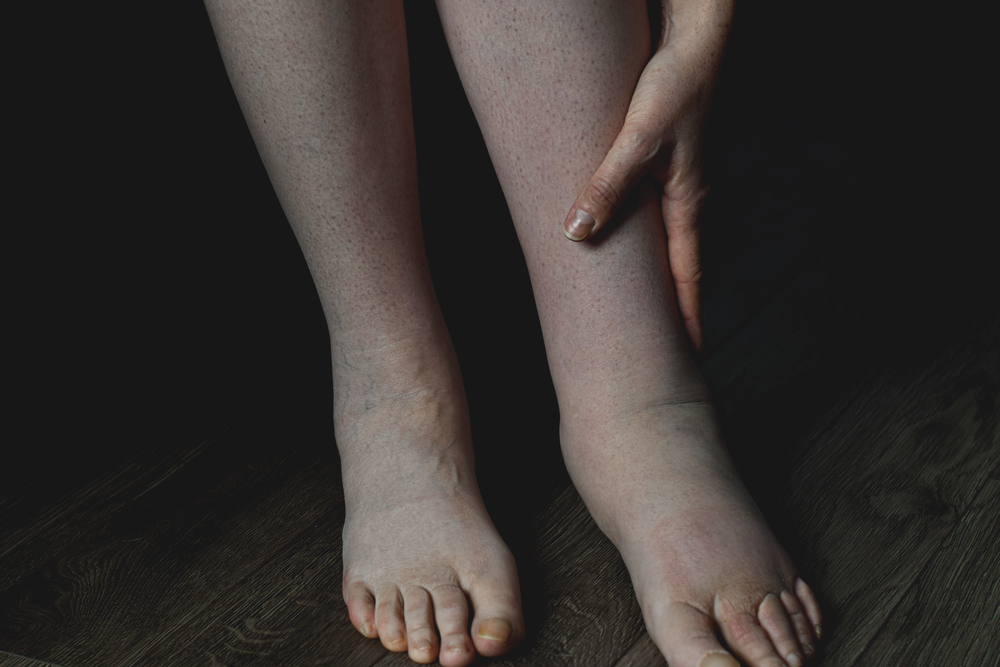Lymphedema, a condition characterized by localized fluid retention and tissue swelling, can present challenges when it comes to the health of the skin. Proper skin care plays a pivotal role in managing the symptoms, ensuring the skin remains resilient and less prone to infections.
At Shaheen Vascular, serving Mountain View and San Jose, CA, we emphasize the importance of a holistic approach to managing lymphedema. With our specialized knowledge, we provide insights and best practices to help individuals maintain healthy skin amidst the challenges posed by this condition.
What Is Lymphedema?
Lymphedema is a condition that is caused by the lymphatic system becoming blocked. This leads to excess lymph fluid building up in the body’s tissues, which causes swelling, primarily in the arms and legs. While it often affects a single arm or leg, in some instances, both arms or both legs might be involved. Seeking swollen limb treatment promptly can help in managing the condition more effectively and reducing complications.
What Are the Causes of Lymphedema?
Lymphedema can be categorized into two main types based on its cause:
- Primary Lymphedema: This is a rare inherited condition resulting from problems with the development of lymph vessels in the body.
- Secondary Lymphedema: This is more common and occurs due to damage or blockage to the lymphatic system. Common causes include surgical removal of lymph nodes, radiation treatment for cancer, infections or tumors that restrict the lymphatic system’s flow, and certain diseases or conditions that lead to tissue swelling.
What Are the Symptoms of Lymphedema?
The predominant symptom of lymphedema is swelling in the limb and swelling in the fingers or toes. This swelling may be accompanied by a feeling of heaviness or tightness, discomfort or aching, restricted range of motion, recurring infections, and skin that is harder or thicker in the affected area.
Why Is Skin Care Important for Patients With Lymphedema?
Lymphedema makes the skin more vulnerable to infections and complications. Proper skin care is integral to lymphedema therapy since it helps to keep the skin healthy, reducing the risk of bacterial and fungal infections. A well-maintained skin care routine can help alleviate some of the discomfort caused by the condition and improve the skin’s overall health and resilience.
Building Your Daily Skin Care Routine
- Cleansing: Opt for a mild, soap-free cleanser and wash the affected area daily. Pat dry gently, avoiding any rubbing.
- Moisturizing: Choose a fragrance-free, hypoallergenic moisturizer. Apply on slightly damp skin to seal in hydration and fortify the skin’s barrier.
- Sun Protection: Skin with lymphedema can be UV-sensitive. Use a broad-spectrum SPF 30+ sunscreen on exposed areas, reapplying every two hours when outdoors, even during the winter.
Additional Skincare for Patients With Lymphedema
Recognizing and Treating Skin Infections
Infections can be a recurring issue for individuals with lymphedema. It’s essential to regularly inspect the affected areas for signs of redness, warmth, or any unusual changes. Early recognition and treatment can prevent complications. Always consult with a healthcare professional if an infection is suspected.
Preventing and Treating Injuries
Proper lymphedema management extends to preventing potential skin injuries. Opt for protective clothing when engaging in activities that might lead to cuts or scrapes. When shaving, use a sharp, clean razor and shave gently. Use repellents or protective measures against bug bites and always treat any bites or stings promptly to reduce the risk of infection.
Protection From Extreme Temperatures
Exposure to very hot or cold temperatures can exacerbate lymphedema symptoms. For effective lymphedema therapy, it’s recommended to avoid prolonged exposure to extreme temperatures. When it’s cold, keep the affected areas well-insulated, and during hot weather, consider cool compresses and staying indoors during peak heat hours.
Avoiding Tight Clothing
Tight clothing can restrict lymph flow, further aggravating lymphedema. Opt for loose-fitting clothing, especially around the affected areas, to promote better circulation and comfort.
Promoting a Healthy Diet and Lifestyle
A balanced diet and proper hydration can play a role in lymphedema management. Consuming a diet rich in antioxidants, vitamins, and minerals can promote skin health. Regular exercise, while considering any medical recommendations, can also benefit lymphatic function.
Treatment of Lymphedema
Advanced Compression Therapy
A cornerstone in addressing lymphedema, advanced compression therapy is designed to promote the proper flow and drainage of lymph fluid, allowing it to be efficiently processed by the body. At our office, a wide range of specialized compression garments are available. These garments are tailored to fit perfectly, and patients have the choice of colors and styles so they can receive the best lymphedema treatment for their needs.
Manual Lymphatic Drainage
A pivotal technique in the realm of lymphedema management is manual lymphatic drainage (MLD). This unique massage technique is specifically crafted to mechanically propel lymphatic fluids, aiding their natural flow. As the targeted areas are gently massaged, this facilitates the efficient draining of fluids and waste, directing them to the appropriate regions of the body and offering an effective swollen limb treatment. Pairing MLD with home-use pumps, which are often covered by insurance and Medicare, can further enhance its efficacy.
Lymphatic Compression Pump Therapies
Another option that we offer is lymphatic compression pump therapy. During this lymphedema treatment, a sleeve is positioned over the affected limb, and controlled air pressure is introduced. This pressure instigates a rhythmic massage-like motion, steering the drainage of accumulated lymphatic fluids and thereby diminishing swelling.
Lymphedema Consultations in Mountain View & San Jose, CA
Managing Lymphedema requires consistent care and expert guidance. At Shaheen Vascular, we are dedicated to providing the best treatments and therapies for people in Mountain View and San Jose, CA. If you’re seeking assistance or have any questions, contact us at (650) 965-1909 or fill out our online form today.




